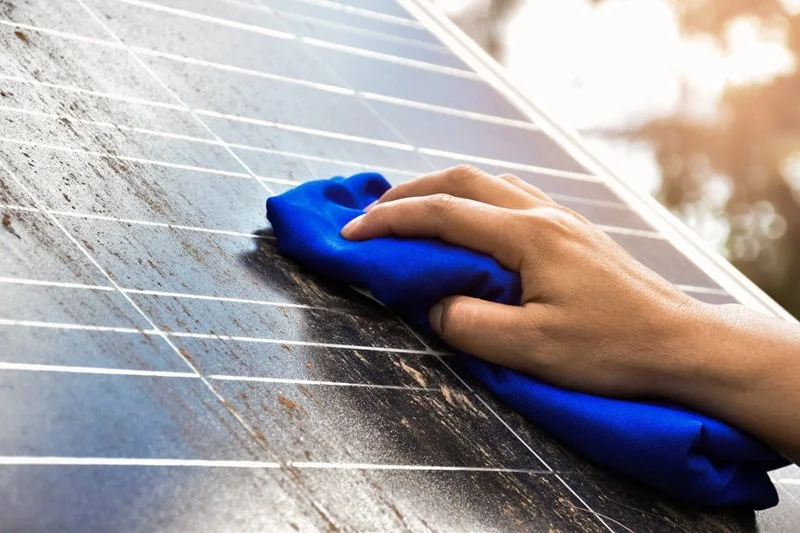When Is a Heat Pump the Right Choice?
/There’s a lot of talk about efficient heating systems and one of the most common refrains is that heat pumps are the best in this category. While this can often be true, there are many situations where they may not be appropriate. The technology is undoubtedly very powerful, but not every home is cut out for it.
Let’s take a look at what types of areas might benefit from it, whether it will benefit you compared to various other systems and how you can decrease costs for installing them in your area if you fit the criteria.
A Brief Explanation of Types of Heat Pumps & How They Work
There are numerous types of heat pumps, but they all share certain characteristics overall. They generally absorb heat or cold from the outside using a coolant and extract or expel temperatures based on what is needed within the home. They all have a very high efficiency compared to standard heating systems like boilers, being up to 4 times more efficient (depending on the type of heat pump).
Types of heat pumps are usually categorised in terms of how they absorb or expel temperatures to and from. Air source heat pumps use the outside air, ground source heat pumps utilise the ground, and water source heat pumps use nearby bodies of water. They all use refrigerants to transport the inside temperature to the outside, whether heat is lost to the ground, water or the air.
Since these refrigerants are renewable, heat pumps can be highly energy efficient. This is one among many reasons that governments are touting them as a great way of decreasing dependence on the gas grid.
This heat can be transferred into your home via an air conditioner or heating unit and also into a water system. The latter encompasses air to water or ground to water heat pumps, which are particularly handy for underfloor heating or generating hot water for your home. These can require extra installation, but they have numerous advantages such as the ones listed earlier.
Air source heat pumps are the cheapest but also have the least amount of efficiency. Ground source heat pumps have the highest efficiency, having a COP (coefficient of performance) of 4.5 at maximum. They are also the most expensive and can require a lot of land depending on whether you use vertical or horizontal boreholes.
So, when can they benefit you the most?
Are Heat Pumps Right for You?
The technology can, in theory, lead to massive savings and help you decrease your carbon footprint. But that is not an automatic given. There are a few situations where the cost you pay, which is far more than the average boiler, will not be worth the savings.
One such example is if you live in a cold climate but your home has less than stellar insulation. This can be an issue in older homes where wear and tear is an issue. Another example is in areas where electricity is very expensive compared to gas. If electricity is more than 4 times more expensive, a gas boiler will be just as cheap and heat pumps will provide minimum financial benefit.
If you do live in a place where electricity is pricey, there are some band-aid solutions. Heat pumps are most efficient if you have solar panels or other renewable energy sources that could help alleviate some of the costs. In fact, if you already have solar panels or hydropower (which can go hand in hand with water source heat pumps), a heat pump can put a lot less strain on them than other electrical heating systems.
Similarly, if you live in an area that is too cold, a standard heat pump may not be the best option. You may need a high temperature heat pump, which can be more expensive. Air source heat pumps can also experience a decrease in performance in the extreme cold, so keep that in mind.
Most homes are easily compatible with air source heat pumps, but they may not have the efficiency you need. Ground source heat pumps require a lot more space and water source heat pumps can be difficult to install.
They do go great with other home appliances in many instances. Air to water, ground to water, and water to water heat pumps can be a great choice if you already have underfloor heating (or are looking to install it). They can be a more efficient means of heating water.
If none of these caveats trip up your interest in getting a heat pump, there is still the cost of the technology that one must consider. They can be a hefty investment for many homes, and prices can vary from state to state. Luckily, there are some ways to make heat pumps more affordable.
How to Make Heat Pumps More Affordable
Heat pumps have some fairly good environmental benefits in the right conditions. This is why many governments, including the US, Australia and the UK, are incentivising the average consumer to buy them. These grants come in various forms, so let’s see how they can benefit you.
In the US the rules can vary from state to state, but there are some federal benefits that many consumers are eligible for. Households are eligible for an annual credit of up to $1,200 for insulation improvements or the installation of efficient windows and doors. Additionally, they can receive a credit of up to $2,000 for the installation of electric heat pumps, which are highly efficient for both heating and cooling.
For guidance on optimal home enhancements, a credit of up to $150 is available for conducting a home energy audit through a professional inspector. State initiatives will soon offer rebates for electric appliances and home insulation retrofitting, aimed at reducing monthly energy expenses. Rebates of as much as $4,000 are accessible to all households, with low-income families eligible for rebates up to $8,000 to enhance home efficiency.
Furthermore, low- and moderate-income families can benefit more from these policies. They receive rebates that cover up to 100% of the cost of installing electric appliances such as heat pump water heaters and electric clothes dryers. Check with your local installers or authorities to see if you qualify for these rebates.
If you live in the UK, however, you could check how to get a ground, water, or air source heat pump grant. The region has numerous sustainable energy and heating grants that are easy to apply for with the help of an installer and could subsidise a large portion of the purchase costs of a heat pump. These include the ECO4 scheme and the Boiler Upgrade Scheme.
In Australia, the grants offered vary from region to region, so check online to see if your region is part of these schemes.
In conclusion, if your home can benefit from a heat pump, there are government programs you can look to that help subsidise your purchase. Be sure to field your options and apply for insulation to maximise your heating and cooling potential.
About the Author:
Rawal Ahmed is a writer for GreenMatch (among other websites) and a former tech journalist. He likes to write about sustainability, consumer technology, and everything else under the sun.











































Rechargeable batteries are reshaping how we power our everyday lives, offering convenience, efficiency, and sustainability in one package. When I first switched from disposable to rechargeable batteries, it felt like a small step. Over time, however, I realized their significant impact — not just on my wallet but also on the environment.